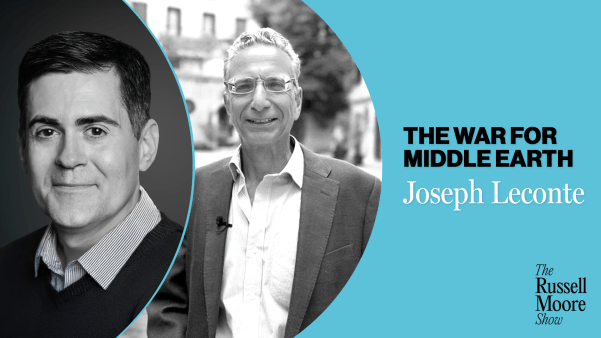What, exactly, sustains us in our vocation: a memory, a feeling, a sense, an idea, or something more tangible? And how do we recover a sense of calling when our feelings and memories lag?
Questions like these badgered me recently when I was studying in Scotland. During that time, our washing machine broke down.
I talked with the repairman-or service engineer, as he is called in Scotland-as he sat on our kitchen floor, dissecting our clothes washer. He had discussed his own church experience as a Roman Catholic in Glasgow. He opined about the priesthood and ministry in general. Then he asked me, “Why are you a minister?”
It was a simple question, asked without guile. But I was stumped for a moment.
“I’m sorry,” he said. “Maybe I shouldn’t ask something so personal.”
“No,” I answered, “it’s a good question. Only it just occurred to me that the way I would have answered you ten years ago isn’t how I’d answer you now. Ten years ago I’d have said God called me, though he never spoke to me out loud. And I’d have left it at that. But now-now I’d have to go a little further.”
The service engineer stopped working for a minute to look at me, waiting for me to continue.
“You see,” I said, “I believe God has made each of us so that we can do many things. And I believe that in whatever we do for a living, we can follow Jesus. The church ministry is sort of a job, a profession in which we help people care for other people. I’m a minister now because I believe I was created with certain abilities that fit well with that job description. I like helping other people discover who they are and what they are meant to be. And I believe Christ is the key for us to be real human beings together.”
I looked at the repairman, unsure if I was just spouting gibberish. But he grunted and returned to his work. In a minute he mumbled, “Real human beings-together. I like that.”
The search
He had presented this question to me just when I was reevaluating my sense of calling. My wife, aware of my quiet doubts, encouraged me to take a little vacation to rest and reflect. So when summer came, I took off for a week of complete distraction, heading for the University of Durham. I sat in on a stimulating seminar on English literature.
I was searching, I suppose, for what the Celtic monks used to call “the place of one’s resurrection.” I recently had come across the ascetic discipline of these ancient mystics who set out on their peregrinatio, a spiritual wandering or pilgrimage. As a pilgrim I came to the shrine of St. Cuthbert and Venerable Bede. Maybe by wandering into an environment where I wasn’t known as a pastor, I could discover what I am and what it means to be called.
What happened there surprised me. I ended up inexplicably doing what I always do, being who I always am, without advertising my office.
I found myself placed, for instance, in the path of people who needed a word of grace or blessing or forgiveness, or who simply needed to be heard or remembered. Mary, the cleaning lady in the dorm, had been chewed out by her supervisor because a woman across the hall said her ashtrays weren’t clean enough. I, as a summer student, listened to her. I also told her how much I appreciated the way she had kept my room clean, even though she’d nursed a cold all week and hadn’t felt like coming to work. Only later did I find out this simple act of listening and encouragement had “blessed” Mary.
It wasn’t until the week was well spent that I looked around and realized what I was doing was ministry. I was meeting people’s needs. But they weren’t turning to me because of the style of my collar-my “clerics” were still hanging in my Aberdeen closet-or because of my preaching. To them, I was just a post-graduate student with an interest in literature.
Also, in our seminars, I noticed I spoke from a theological perspective, not because I needed to speak for a cause or defend a party line, but because I saw theological issues as essentially human issues. Shakespeare’s old Falstaff and young Prince Harry were dealing with the concerns of betrayal and guilt and grace, concerns I felt deeply as a person and as a parson. I couldn’t help but see the play theologically.
Also, as I knelt in the vast Norman cathedral on the banks of the Wear River, I heard myself praying, not as an ecclesiastic but as a person.
The finding
While I sought, somewhat desperately, for a recovery of a sense of vocation, it had eluded me. But when I simply lived as a person among people, I discovered I was a minister.
On returning to Aberdeen, I came across two titans of the spirit who together spoke to me:
Henry David Thoreau startled me: “We are constantly invited to be who we are.”
Martin Luther King, Jr., challenged me: “You ought to believe something in life, believe that thing so fervently that you will stand up with it to the end of your days.”
Their words subtly connected something I would have missed a month before: our calling is to be simply who we are and meet the needs that confront us. This elusive sense of calling is denied us when we seek it in abstraction, but it is ours when we get on with the business of living.
I still can’t muster a sense of calling upon demand. I can’t stir up my official, pastoral feelings whenever I want them to bolster my flagging vocational confidence.
Perhaps I never shall. Perhaps I never should. And I certainly cannot tell someone else how to find or recover a sense of his or her vocation. But I remain astonished that sometimes when I stop trying to find my calling, I find myself called.
-Michael Jinkins
First Presbyterian Church
Brenham, Texas
Copyright © 1990 by the author or Christianity Today/Leadership Journal. Click here for reprint information on Leadership Journal.









